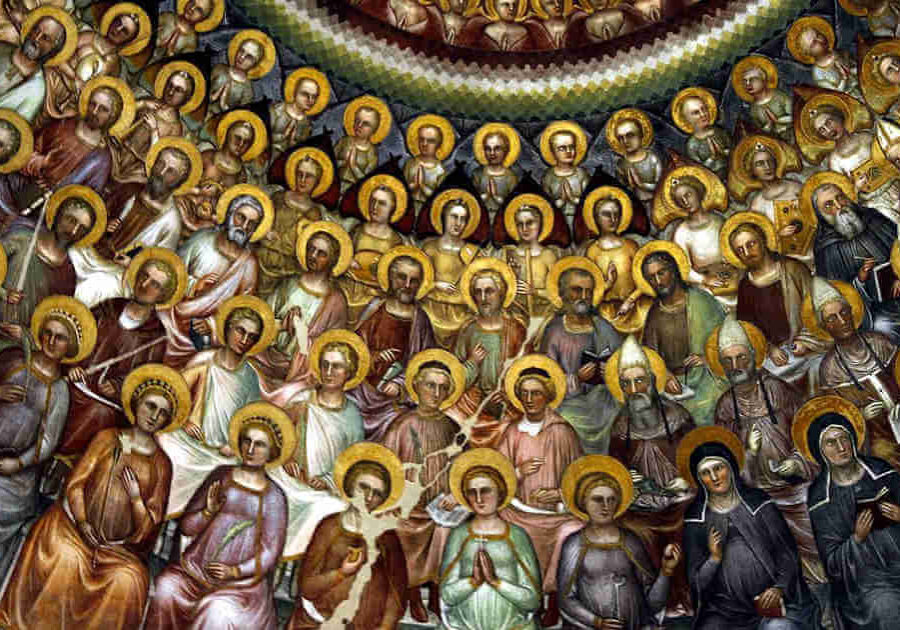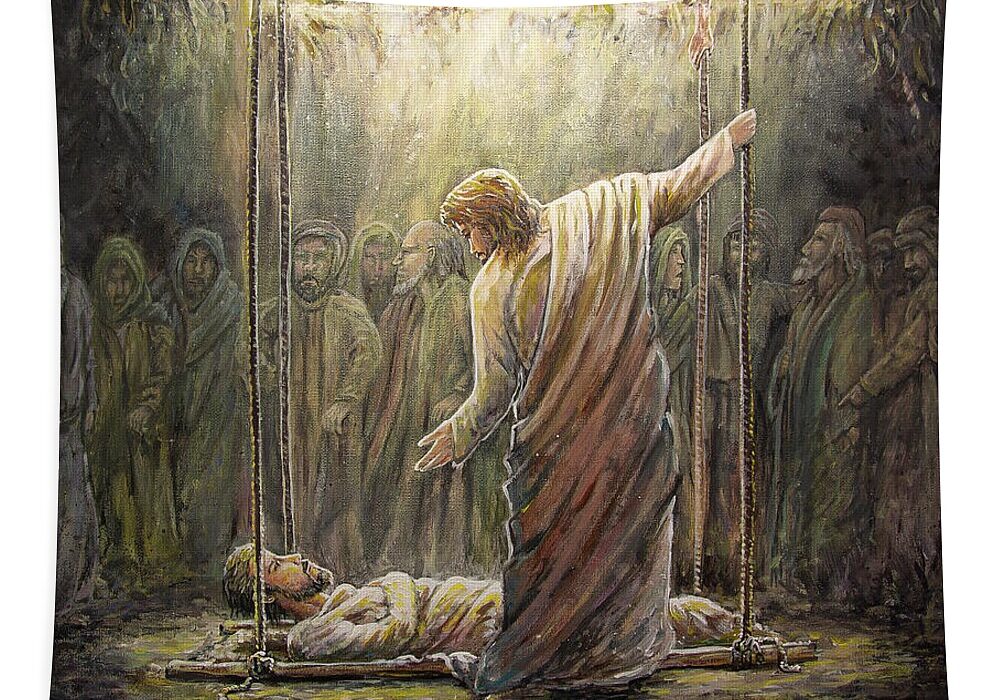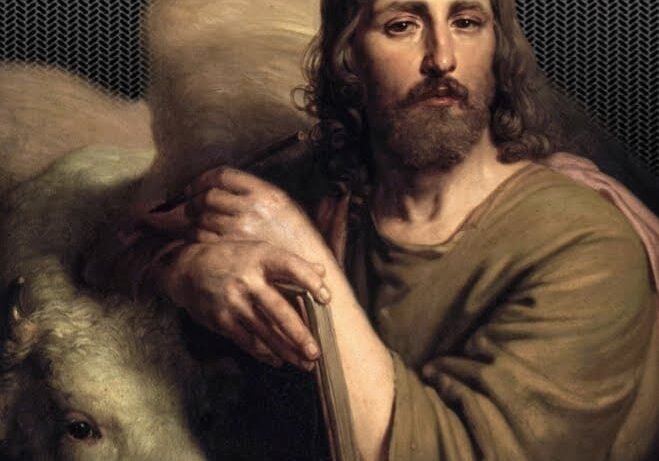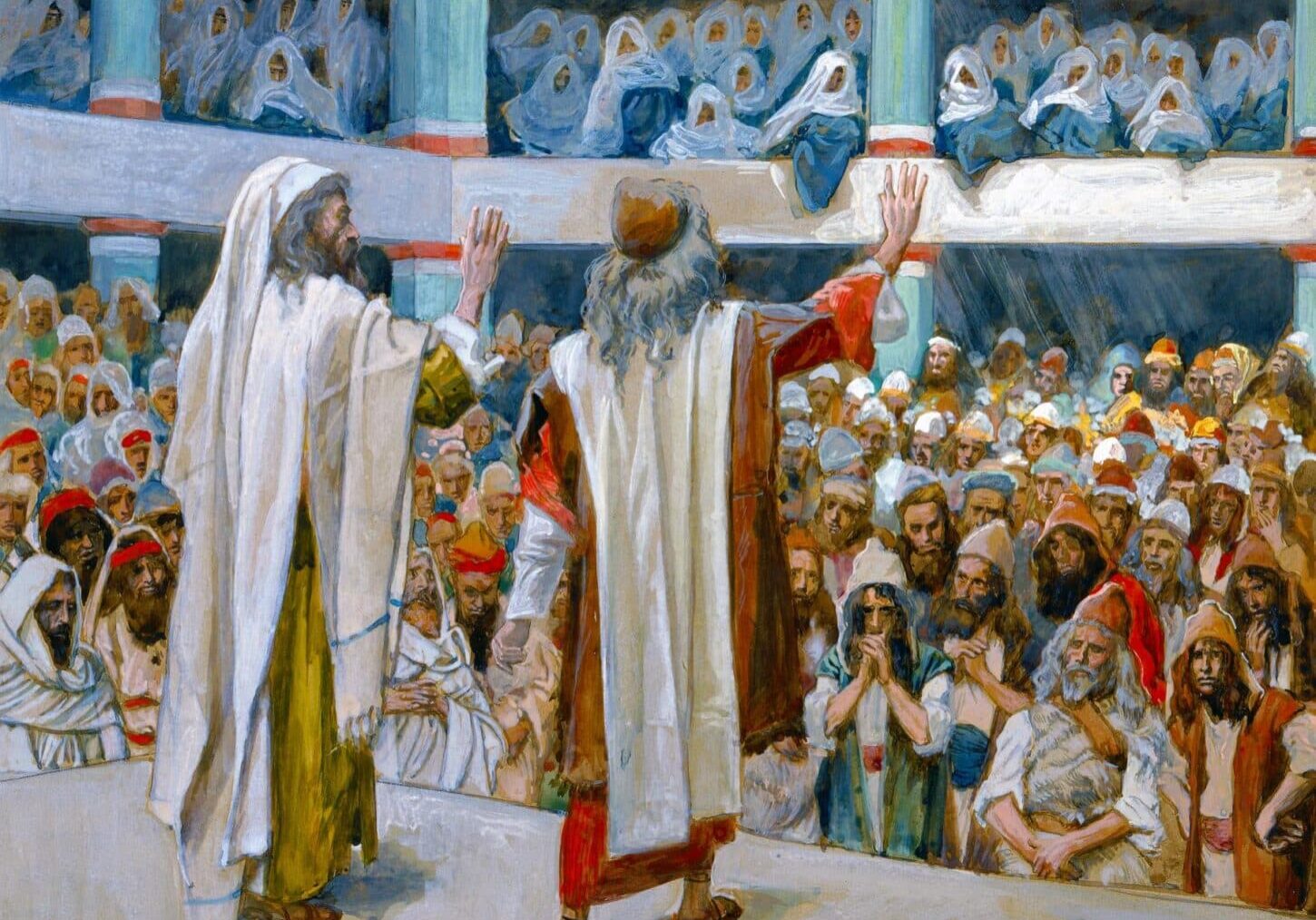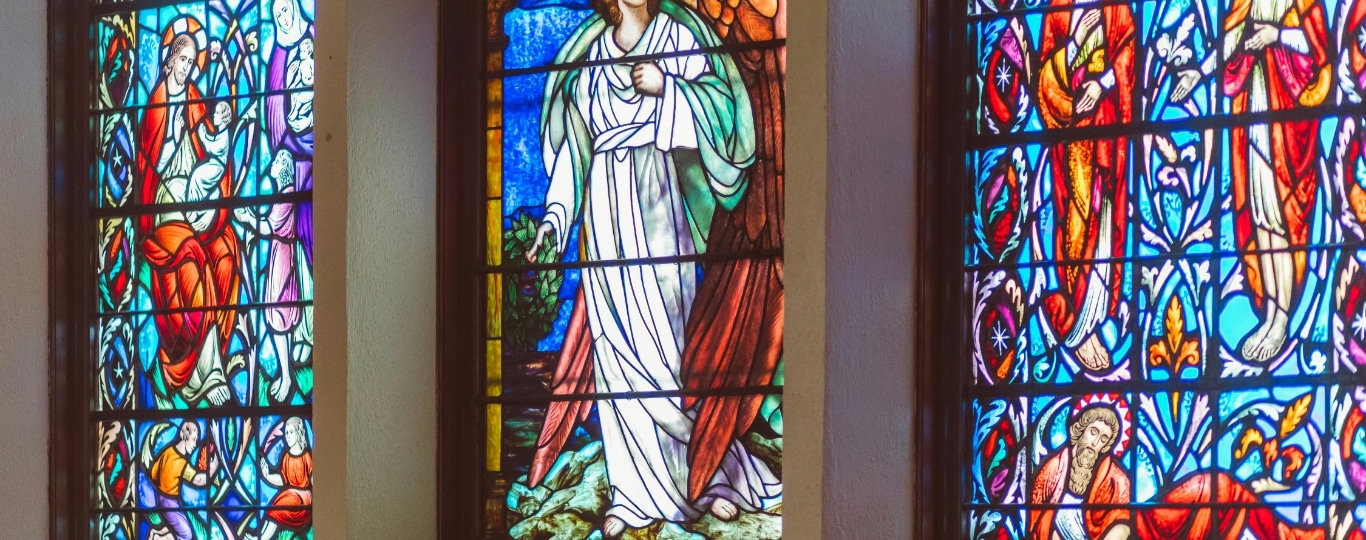†
If we have been walking with our fellow Anglicans, faithfully through the 1928 Book of Common Prayer Lectionary for the Daily Offices, we will know that during these latter weeks of Trinitytide, important readings from Job have been recommended to us. — In one of those readings, GOD ALMIGHTY says, “[Job], my servant … there is none like him on the earth, a blameless and upright man, one who fears God and shuns (turns away from) evil.” (Job 1.8). And yet, what happens to Job, even with these elevated praises of the ALMIGHTY? In the blink of an eye, he loses all of his livestock, all of his manservants and maidservants, his ten children (seven sons and three daughters), the property he bequeathed unto his heirs, and finally his physical health as well. — And yet, having been afflicted so significantly, Job spends his words throughout the book named after him, defending his innocence and ALMIGHTY GOD’s righteous justice. After the great affliction described above, Job says: “Look, I go forward, but GOD is not there, and backward, but I cannot perceive Him; When He works on the left hand, I cannot behold Him; When GOD turns to the right hand, I cannot see Him; But He knows the way that I take; When He has tested me, I shall come forth as gold. My foot has held fast to His steps; I have kept His way and not turned aside. I have not departed from the commandment of His lips; I have treasured the words of His mouth more than my necessary food” (Job 23.8-12). — Job’s friends, on the other hand, observing Job with boils all over his body and his earthly and relational treasures burned up, remark, in objection to Job: “Far be it from GOD to do wickedness, and from the ALMIGHTY to commit iniquity. For He repays man according to his work and makes man to find a reward according to his way” (Job 34.10b-11).
Bottom line: the theology of Job’s friends, and most Christians in the 21st-century Church, is the following: though a believer in GOD, if you do bad, bad things will happen to you; if you do good, good things will happen to you. It is a form of Christianized karma, wherein one’s thoughts and behaviors influence the positive or negative outcomes in one’s life. And yet, listen to the Psalmist, who presents us with a different world view: “For I was envious of the boastful, when I saw the prosperity of the wicked. For there are no pangs in their death, but their strength is firm. They are not in trouble as other men, nor are they plagued like other men. Therefore, pride serves as their necklace; violence covers them like a garment. Their eyes bulge with abundance; they have more than the heart could wish. They scoff and speak wickedly concerning oppression; they speak loftily. They set their mouth against the heavens, and their tongue walks through the earth … Behold, these are the ungodly, who are always at ease; they increase in riches.” (Psalm 73.3-9 & 12).
The Bible is not as quick as Eliphaz, Bildad, and Zophar, Job’s friends, to confirm a Christianized principle of karma. — JESUS, Himself teaches in the Sermon on the Mount a different principle that is consistent throughout the Old Testament Canon: “GOD makes His sun rise on the evil and on the good and sends rain on the just and on the unjust” (St. Matthew 5:45). So how do we make sense of illness, disease, handicaps, and injustices that happen to GOD’s people, especially the innocent? — There is no easy way to do so, and even JESUS does not come down succinctly and authoritatively on the matter. In the Gospel of St. Luke, chapter thirteen, JESUS is reasoning with His disciples about some recent tragedies that occurred in Israel. The LORD says: “Do you suppose that these Galileans were worse sinners than all other Galileans, because they suffered such things? I tell you, no; but unless you repent, you will all likewise perish. Or those eighteen on whom the tower in Siloam fell and killed them, do you think that they were worse sinners than all other men who dwelt in Jerusalem? I tell you, no; but unless you repent you will all likewise perish” (St. Luke 13.2-5). — JESUS is careful to take the blame for tragedy and accidents away from the virtuousness or depravity of the victims. Rather, the LORD points to spiritual repentance as the necessary topic that we are not talking about enough. Unless we repent and reconsider our heart’s moral moorings and foundation, something worse than a tower falling on innocent people, JESUS says, will happen to us.
If, there is any clarity on the issue of tragedy, sickness, or harm coming to GOD’s faithful people, the biblical teaching concerning the corruption of all of creation, including mankind in all his conditions (physical and spiritual), due to sin, gets us closer to an explanation. It is the sickness of sin that has corrupted the world, causing death and harm to its inhabitants, and it is only the grace of GOD that allows for the raining of goodness upon the wicked as well as the righteous. Thus, when faced with the question: ‘who sinned, this man or his parents, that he was born blind?’, we can answer with confidence with the words of JESUS: “Neither this man nor his parents sinned, but that the works of GOD, [by the goodness of His grace], should be revealed in him … [should he believe]” (St. John 9.3).
Mankind’s condition cannot be simplified down to the goodness or lawlessness of a single person’s thoughts or actions. To assign blame or fame to an individual person for either their unfortunate or superior position in this life is to miscalculate the world’s order as set forth by GOD, our Creator. The Bible says that “The creation was subjected to futility (viz., cosmic frustration, if you will), not willingly, but because of GOD, who subjected it [or made it dependent] upon hope” (Romans 8.20). — The cosmic frustration of sin is a disease that all men participate in, whether good or evil, and it causes us all pain, irrespective of whether we have a physical defect or perfect health. The Bible teaches a clear theology on this point: in Adam (whose children we are by nature), all die, Jew and Gentile; male and female; Scythian and refined. And “through one man (Adam) sin entered the world, and death through sin, spread to all men, because all have sinned” (Romans 5.12).
GOD has given Man space for his ‘freewill’, thereby allowing us to be subject to the futility of sin and its undesirable effects, that we might look in hope unto His sovereign grace. For it is the LORD that we are to wait upon, that He ‘may give us our food in due season.’ (cf. Ps. 104.27) — Thus, to deal accurately with the problem of sin’s pain, we must do so without looking for shadowy scapegoats. For if we do, we will miss the greater work GOD has done in Christ JESUS to reconcile us from our sin, which comes to those who, like JESUS said, ‘repent’. — And if we will not turn our back on sin and turn towards GOD, what then becomes the common scapegoat used by Mankind? — It is to put ourselves in the place of GOD as arbiters of good and evil. To judge in the place of GOD by physical condition and not by ‘heart-character’, as did Eliphaz, Bildad, and Zophar of Job. — The false principle of Christianized karma becomes our judicial measuring stick, and we see the condition of one’s life as the tell-tale sign of their righteous or unrighteous love of GOD and neighbor. — In fact, we might even judge ourselves by the same standard, shaming and deadening our own spiritual relationship with GOD and our brother, unnecessarily.
This is a mistake – it is the wrong eternal calculation! As JESUS said, ‘Do you think that those who suffer tragedies, congenital diseases, or handicaps are worse sinners than all other men?’ It is what comes out of the heart of man that matters, not what he eats, wears, or how able-bodied he is, that has eternal significance. — The language and stories of the Bible make use of the body and its maladies as sacraments, reminding us of the spiritual fallenness of our human nature. — And most importantly, to show us our deep, existential need for GOD’s mercy, grace, and love through Holy Communion with Him.
For example, St. Paul details how the destructive character of sin as a sickness, pervades the entire human race, corrupting and infecting Man’s mind, not his body, thereby blinding his heart with spiritual decay. — Concerning the painful ‘sin-sickness’ of mind influencing heart, Paul says: “You should no longer walk as the rest of the Gentiles walk, in the futility of their mind, having their understanding darkened, being alienated from the life of GOD, because of the ignorance that is in them, because of the blindness of their heart; who, being past feeling, have given themselves over to lewdness, to work all uncleanness with greediness” (Ephesians 4.17-19). Do you see the disabilities that sin causes – it is necessarily a heart issue, not a body issue.
The Apostle describes how sin causes the futility of right-thinking; blinding darkness; estrangement from any fellowship with the Divine; cognitive oafishness; unfeeling heartlessness; and impure cravenness. — A life-threatening cancer, congenital disease, or a handicap due to accident could never express (as horrible as they might be), the true horror and ruinous effects of sin upon the human heart and soul.
No greater emphasis is made of this truth than in today’s Gospel Lesson. In St. Matthew 9, where a paralyzed man, clearly loved by his friends, is lowered through the roof of the home where JESUS was. Due to the crowds that had come to see the LORD, there was no means for the man to be brought to the LORD through the doors of the house. Thus, for their great love of the man, his friends removed the thatch from the roof of the house and lowered him down, directly in front of JESUS. — What a sight that must have been – what faith and boldness, both of the friends and the man himself! For without permission, certainly such friends would never have superseded their beloved’s wishes without his consent. — With such a scene being presented unto Him, surely, everyone thought, JESUS would heal the man; hands down. And yet, the LORD does something no one expects – He says to the paralyzed man: “Son, be of good cheer; your sins are forgiven you” (St. Matthew 9.2). What, ‘sins are forgiven’? — JESUS had not done this before! ‘Your sins are forgiven you’, JESUS said, yet the man remained motionless on his mat while the people and all the religious leaders began to rustle about with great discomfort and frustration, saying: “Who is this who speaks blasphemies? Who can forgive sins but God alone?” (St. Luke 5.21). And for a truth, there must have been others, if they did not say it, must have thought to themselves: ‘Could not this Man, who opened the eyes of the blind, also have healed this man of his paralysis? (cf. John 11.37)
The paralyzed man’s greater need, according to GOD, was the forgiveness of his pain – not physical, but the sin-sickness of his heart and soul. And notice, his reconciliation to GOD through Christ the LORD did not cause him sudden freedom from his paralysis. On the contrary, the man remained motionless and immobilized as he had been since he entered JESUS’ presence. — The man was made spiritually whole, and yet he lay in his miserable condition, nonetheless, proving that his disability was caused not by his sin, but by some other means. — The greater pain that the man was experiencing was separation from GOD, and JESUS cured this sickness, showing us that the disease of sin is ‘the greater’ tragedy in the human experience, over and above any handicapping accident or sickness we might experience. — Though we hear nothing from the man or his friends upon JESUS’ pronunciation of the forgiveness of the his sins, he must have surely said in his heart: ‘“Indeed it was for my own peace that I had great bitterness; but You, JESUS, have lovingly delivered my soul from the pit of corruption. For You have cast all my sins behind Your back’ (Isaiah 38.17). And the futility of my mind, and the darkening of my understanding, which has caused unbearable alienation from the life of GOD, has been relieved.’ — JESUS knew this reality, just as the man did, but to prove His authority over sin and death, and that one’s physical or mental condition should not be the measuring stick of one’s goodness or depravity, JESUS overwhelmed the cosmic confusion of the man’s existence, and said: “Arise, take up your bed, and go to your house.” And he arose and departed to his house” (St. Matthew 9.6-7).
When GOD works on the right hand or the left, we cannot perceive Him – His ways are mysterious. Pleading with us in this regard, one theologian has said, “And though GOD ALMIGHTY should not heal thee of thy physical maladies, wilt thou not say that thou hast not sought in vain, if He assures thee, (as JESUS did the paralyzed man, ‘be of good cheer’), that thy sins are pardoned? Wilt thou look not upon that as a sufficient ground of comfort, though thou shouldst continue sick of the palsy?”1 — If you can be content with that, as I must also be content with it, may the Holy Spirit direct and rule our hearts in all things, that with the healing of the Great Physician from the pain of sin in our hearts and minds, we might live spiritually healthy, whole, and unimpaired lives – free of sin and free of sadness. May we live lives that reflect GOD’s glory and power, by “Putting away all lying — speaking truth with our neighbors – and if made angry, sinning not – stealing from our brothers no longer, but instead, laboring that we may have something to give him who has need – edifying and imparting grace to our hearers — grieving not the Holy Spirit of GOD in whom we are sealed for the day of redemption. And finally, dear church, let us rise, taking up our spiritual mats where we once lay immobile in sin-sickness and sadness, now being spiritually healed by JESUS, so that we might be kind, tenderhearted, and forgiving of one another, even as GOD in Christ has forgiven us (cf. Eph. 4.25-32), going away, amazed and glorifying GOD, saying, ‘We never saw anything like this!’ (cf. Mark 2.12). In the Name of Him who lives and reigns with the Father and the Holy Ghost, even JESUS Christ, the LORD over the lives of all men – even your body and soul, as well as mine. — Amen.
—
1 Henry, Matthew. BlueLetterBible.org. “Commentary of St. Matthew 9.” Accessed 25 October 2025. https://www.blueletterbible.org/Comm/mhc/Mat/Mat_009.cfm?a=938005.
Join Us for Biblical Worship, Study, & Fellowship
Sundays:
Morning Prayer 9:45 am
Coffee & Catechesis 10:30 am
Holy Communion 12:00 pm
Thursdays:
Holy Communion 6:00 pm
Recent Sermons
